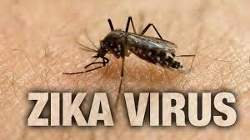CDPH Reports Two Cases of Zika-Related Birth Defects in California
Date: 8/4/2016, Number: 16-47
Contact: Ali Bay – (916) 440-7259
The California Department of Public Health (CDPH) reported today that two infants with Zika-related microcephaly have been born in California to women who had Zika virus infections during pregnancy after spending time in a country where the virus is endemic. While mosquitoes that can carry the virus have been found in 12 California counties, there is no evidence these mosquitoes are transmitting Zika in the state at this time.
“This is a sobering reminder for Californians that Zika can cause serious harm to a developing fetus,” said CDPH Director and State Health Officer Dr. Karen Smith. “We join the Centers for Disease Control and Prevention (CDC) in urging pregnant women to avoid travel to areas with known Zika transmission. Pregnant women who must travel to one of these areas should strictly follow steps to prevent mosquito bites and speak with a health care provider upon return.”
“Zika virus can also be transmitted to sexual partners by both males and females. Both men and women of childbearing age should take precautions if they have recently traveled, or plan to travel, to a location where Zika is spreading,” added Dr. Smith.
A team of experts across several disciplines at CDPH is working closely with local public health departments, vector control agencies and the medical community to ensure that California is responding aggressively and appropriately to the emerging threat of Zika virus. CDPH is actively monitoring all pregnant women with Zika infection in California. The Department is also collaborating with local health departments to provide assistance to families with infants born with Zika-related birth defects to ensure they receive appropriate medical care. Infants born to mothers with confirmed infections will be monitored for one year.
 As of July 29, CDPH has confirmed 114 travel-associated Zika virus infections in 22 counties. A total of 21 infections have been confirmed in pregnant women. This information is updated every Friday on the CDPH Zika website.
As of July 29, CDPH has confirmed 114 travel-associated Zika virus infections in 22 counties. A total of 21 infections have been confirmed in pregnant women. This information is updated every Friday on the CDPH Zika website.
While Zika infection is often asymptomatic, those who do have symptoms report fever, rash, joint pain and conjunctivitis (red eyes). The illness is usually mild with symptoms lasting for several days to a week after being bitten by an infected mosquito. There is currently no vaccine or treatment for Zika other than supportive care, rest, fluids and fever relief.
People traveling to areas with known Zika transmission should take steps to avoid mosquito bites:
- Use insect repellents containing DEET, picaridin, IR3535, oil of lemon eucalyptus or para-menthane-diol for long-lasting protection. If using sunscreen and insect repellent, apply sunscreen first and then the repellent. Pregnant women and women who are breastfeeding should choose an EPA-registered insect repellent and use it according to the product label. Do not use insect repellent on infants less than two months of age.
- Wear long-sleeved shirts and long pants.
- Use air conditioning or window and door screens to keep mosquitoes outside. If mosquitoes may come indoors, sleep under a bed net.
- Reduce the number of mosquitoes outside by emptying standing water from containers, such as flowerpots and buckets.
Sexually active adults who travel to areas with Zika transmission should use condoms or other barriers in order to avoid getting or passing Zika during sex. Couples planning pregnancy should speak with a health care provider about a safe time to wait before trying to get pregnant.
CDPH provides Zika-related pregnancy outcome data to the U.S. Zika Pregnancy Registry maintained by the CDC. The CDC is collecting this information to better understand the risks posed by Zika infection during pregnancy.
In order to protect privacy, CDPH is not releasing additional details or the locations of the mothers and children. Infants born with birth defects, including microcephaly, as a result of maternal Zika infection do not pose a public health risk to their communities.
For more information about Zika, visit the CDPH Zika website, which includes the following resources:

